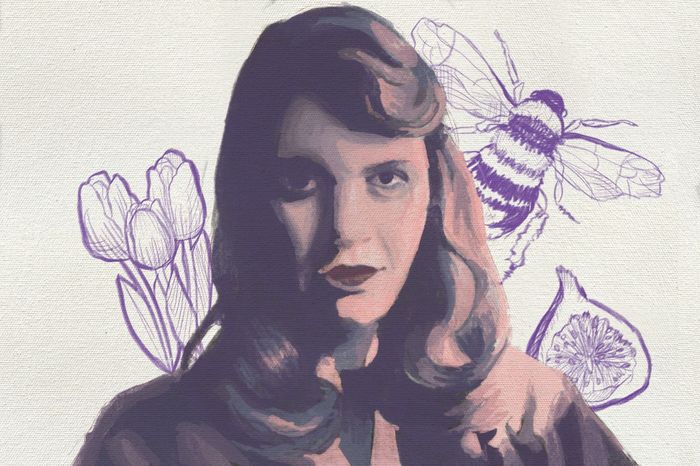How did they do it?
Juggling criticism and creativity, Nabiha Ali reflects on the trial of personal writing during term-time

“A woman must have […] a room of her own if she is to write fiction,” declares Virginia Woolf in A Room of One’s Own: I’d say this is true for almost every aspiring writer. When I first arrived in Cambridge, groggy with the three train-rides it had taken me and my family to get there, yet fuelled by a sense of optimism, I anticipated a room free from the inconveniences of the sounds of a vacuum-cleaner, or the obnoxious whirring of a neighbour’s early-morning lawn-mower, something I’d found inescapable while attempting to compose a poem in my small Lancashire hometown. It would be, I thought, as if I was in my own small vacuum, every spare minute dedicated to the thing I loved most – writing. I soon realised just how deluded I’d been.
In the following days, I told myself I’d soon grow accustomed to the forlorn sight of drab grey buildings outside my accommodation window, the scuffed trainers that somebody had left dangling outside their bedroom window, seemingly to dry, and the ostensibly untimed, though suspiciously periodic, late-night fire alarms. The view from the window and the trainers I grew gradually accustomed to, but I could never quite derive a sense of humour from the scowl-inducing minutes spent outside in the December-sharp cold, confronted by the sight of other people’s checkered pyjama-bottoms.
“Two weeks in and I was already experiencing the somewhat melancholic effects of a complete withdrawal from creative writing”
Two weeks in and I was already experiencing the somewhat melodramatic effects of a complete withdrawal from creative writing. My inbox, once pinging with responses from various magazines I’d submitted to, now lay almost embarrassingly stagnant. I told myself it was merely the result of an initial shift in workload between academic institutions, something I’d soon grow accustomed to. I recall how, very early on, in an effort to replace the fulfilment I derived from creative writing with that of essay writing, I risked merging the two forms in what can only be described as a disastrous feat. Needless to say, my supervisor’s closing comment was enough to make me cease with this approach: stay away from “imaginative embellishments," I was told, feedback I later learned to value for its honesty – that is, after the initial “hypersensitive-fresher” sting had worn off.
I soon came to recognise the hard-to-accept fact: that to juggle a Cambridge workload alongside the drafting and rigorous editing I’d become so accustomed to with my creative writing was, safe to say, highly unfeasible.
As a college student, I’d say I managed to balance writing and a school workload fairly well. Certainly, I recall once producing a mass of impromptu prose the night before a final A-level exam, my painstakingly-composed revision notes spread out in a disorganised array before me. I quake to think of the consequences when neglecting a supervision essay with the same aim in mind now!
“I’ve become accustomed to embracing short-term academic certainty over long-term career-oriented goals”
There are times when fleshing out the skeleton of a poem seems far more appealing than researching the riveting particulars of metonyms, yet I resign myself begrudgingly to a most thrilling and enthusiastic perusal of the latter. Why? Because as a Cambridge student, I’ve become accustomed to embracing short-term academic certainty over long-term career-oriented goals, particularly when those goals are regarded as peculiarly unorthodox.
Despite the English Faculty’s efforts to publicise author-related events, from my own experience I’ve learned that the actual number of attendees at these events is often uncomfortably scarce – “intimate,” as I once heard someone call it – leaving limited opportunities for potential networking and the equivalent.
And this battle is not something affecting just the contemporary Cambridge student-writer: “After this Racine paper, this Ronsard purgatory, this Sophocles, I shall write: letters and prose and poetry, toward the end of the week; I must be stoic till then”, Pulitzer Prize winner Sylvia Plath writes during her time at Cambridge. Often, slipping under a tidal-wave of essay drafts, forms and supervision notes, it seems “the end of the week” will never come.
Although I can’t quite see a feasible route around this dilemma (other than a complete off-the-rails neglect of essay-writing), I do acknowledge that resigning myself to writing purely during the vacation period is not as horrifying now as it might have been when I first arrived at Cambridge. Though I may not produce half as much as when writing year-round, I can say with absolute certainty that taking a step back from any kind of creative pursuit has its advantages: personally, I felt I approached my work later on with a renewed sense of vigour and purpose. Needless to say, whenever I overhear the names A.S. Byatt or Zadie Smith, I don’t think I’ll ever cease to be struck with that familiar feeling of half-frustration, half-awe, wondering: how did they do it?
Want to share your thoughts on this article? Send us a letter to letters@varsity.co.uk or by using this form.
 News / Candidates clash over Chancellorship25 April 2025
News / Candidates clash over Chancellorship25 April 2025 Interviews / Dr Ally Louks on going viral for all the wrong reasons25 April 2025
Interviews / Dr Ally Louks on going viral for all the wrong reasons25 April 2025 Music / The pipes are calling: the life of a Cambridge Organ Scholar25 April 2025
Music / The pipes are calling: the life of a Cambridge Organ Scholar25 April 2025 News / Cambridge professor paid over $1 million for FBI intel since 199125 April 2025
News / Cambridge professor paid over $1 million for FBI intel since 199125 April 2025 Arts / Plays and playing truant: Stephen Fry’s Cambridge25 April 2025
Arts / Plays and playing truant: Stephen Fry’s Cambridge25 April 2025






